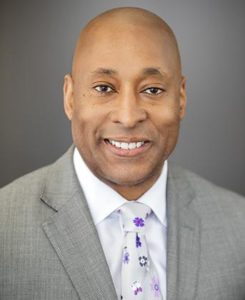Last week, I had the privilege of serving as a panelist at the 2023 Southern California State of Reform Health Policy Conference. This event is dedicated to forging connections between health policy and the practical world of politics.
I was part of an engaging session titled State of Today’s Healthcare System in the Region. It was an honor to speak alongside Sameer Amin, MD, chief medical officer at L.A. Care Health Plan; Toni Johnson-Chavis, MD, chief executive officer of De Novo Healthcare Community; and Louise McCarthy, president and chief executive officer of the Community Clinic Association of Los Angeles County.
The discussion explored the many financial and operational challenges providers have faced throughout and since the COVID-19 pandemic. What most resonated with me was a strong call to foster collaboration among all stakeholders involved in providing care across the continuum, and to guide policymakers towards solutions rather than allowing them to develop ideas in a vacuum. The diverse perspectives shared by the panelists illustrate the importance of including a wide range of stakeholders at the table.
The discussion highlighted several critical issues including:
- Insufficient government reimbursement
- Workforce shortages and the need to establish an employee pipeline
- Inadequate access to behavioral health resources
- The erosion of community-based services, which contributes to the challenge of efficiently transitioning patients through the continuum of care, leading to ineffective expenditure of funds
- Housing concerns
- Challenges related to health IT interoperability, and
- Redundant administrative work performed by providers that drains productivity and increases costs.
One particularly noteworthy point made was that seeking increased funding is not the only solution to these issues. While hospital finances are a significant concern for HASC and its members, there is room for improving efficiency and processes at all levels of government, and across all areas of care provision, within our communities.
Addressing all of these challenges will require unflinching determination, but I am confident that we can prioritize and focus on some of the most urgent issues facing us today. HASC plays a unique regional role as a convener, bringing together hospital leaders, elected officials, government agencies, public health officials, health plans and many others. We are committed to strengthening these relationships to develop cohesive systems of care.
In the coming months, HASC will embark on its annual process of formulating strategic priorities for the year. We will outline the steps we plan to take to advance our objectives, and we warmly invite your input as we chart our path for 2024. Your voice is invaluable as we work towards improving the health care landscape for our communities.
